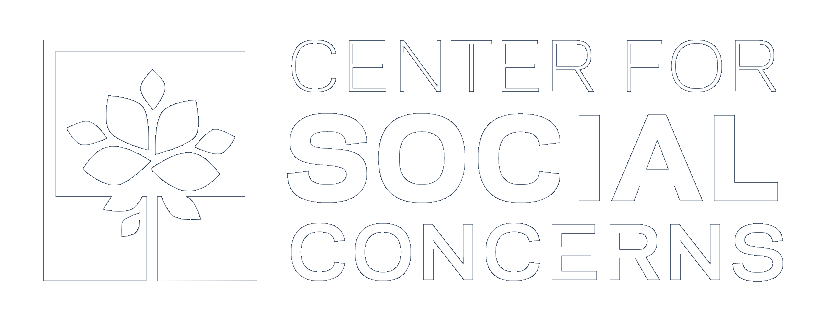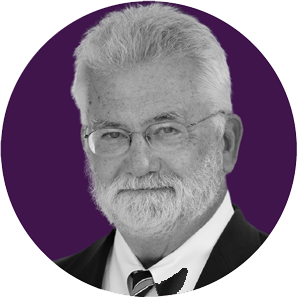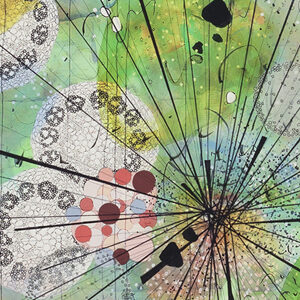Lawyers serve important and challenging roles in any civilized society. For them to fulfill those roles, we need for lawyers to conduct themselves in certain ways, despite pressures and temptations to act otherwise. One way we try to achieve this is through rules, or at least guidelines, for lawyers to follow. After the Watergate scandal that led to the imprisonment of dozens of lawyers, bar associations adopted new rules of professional conduct, and law schools required students to take courses on those rules. When leaders of the bench and bar still perceived an ethical crisis in the profession a few years later, they wrote dozens of professionalism guidelines, standards, statements, and creeds. Those documents became the gospels of the modern professionalism movement and have been the focus of continuing legal education sermons ever since.
Rules and guidelines serve important purposes, but they inevitably fail as a foundation for professionalism for lawyers. Consider an example: One of the basic concepts of professional conduct is that a lawyer must generally keep confidential all information relating to the representation of a client. The confidentiality rule alerts lawyers to the general requirement and provides important guidance about circumstances under which a lawyer might be free to breach confidentiality without fear of professional discipline. The rules do not, however, dictate when a lawyer must do so (except in rare, narrow circumstances). To use a dramatic example, a lawyer may disclose confidential information to save a life. But what if the revelation of the confidential information will lead to the prosecution of a client? Many rules, like this one, do not dictate a course of action, but instead guide discretion. This is not the fault of the drafters of the rules. Rules could not hope to provide detailed instructions for every eventuality a lawyer may encounter. The work of a lawyer is far too complex for an ethical cookbook. But something must guide that discretion.
Rules also fail as motivation for professional conduct. Discretionary rules by definition leave lawyers free to proceed as they see fit. For those rules that contain mandates or prohibitions, the incentive for compliance presumably is fear of discipline. But much misconduct of lawyers occurs in private and is therefore unlikely to be detected. For example, lawyers are not permitted to assist clients in lying in court. Who’s to know if a lawyer does so in the privacy of a lawyer’s office? Fear as motivation for professional conduct will not suffice.
Professionalism guidelines serve some purposes, but they also have shortcomings. Some are written with more particularity than the rules, and so provide additional guidance about what conduct is expected of a professional. And many sets of guidelines concern behaviors, such as the rampant incivility that lawyers display to each other, that the rules mostly leave untouched. Guidelines do not, however, solve the motivation problem. They are purely aspirational. The guidelines, and those who proselytize them, urge lawyers to aspire to ethical conduct “at a higher level” than the rules require. Too often, such exhortations take the form of unwanted and repetitive preaching. Law students and lawyers often are not receptive to preaching.
Moreover, professionalism guidelines and creeds do little to guide a lawyer in a specific moment of professional practice when aspirations conflict with each other. For example, if a lawyer is told by the guidelines to be courteous and cooperative with opposing counsel, but also told to expedite litigation, what should a lawyer do when opposing counsel asks for an extension of time?
If externally imposed rules and guidelines will not get the job done, what is left? How can the legal profession maximize the likelihood that its members will act with professionalism?
A recent amendment to the accreditation standards for law schools from the American Bar Association Section on Legal Education and Admission to the Bar now requires that, as a condition of accreditation, law schools must provide students opportunities for the development of “professional identity.” A professional identity is a deep sense of self in the role of a lawyer. In other words, it consists of all the ways in which a lawyer would wish to complete a sentence that begins, “I am the kind of lawyer who . . .” A lawyer who has a healthy professional identity is a person of a certain character, with deeply ingrained habits, traits, and capacities that dispose the lawyer to act with professionalism. They empower the lawyer in moments of uncertainty and temptation to do the right thing, in the right way.
Professional identity is virtue ethics by another name. Those deeply ingrained character habits, traits, and capacities that lawyers need are virtues. When they are deployed, they bring the lawyer closer to the ideal of the professional lawyer. The pivot to professional identity shifts the focus from externally-imposed rules and guidelines to the internal cultivation of the virtues that will help lawyers fulfill their public purposes and flourish in the profession. Virtue is, and should always have been, the foundation of professionalism for lawyers.
The necessary virtues for the professional lawyer are easy to identify. A lawyer must strive for professional excellence and cultivate a fiduciary disposition toward clients. At the same time, a lawyer must be respectful of the law and the institutions of the law. The professional lawyer will practice in a spirit of public service, which includes striving to provide access to legal services for all, to govern the profession in the public interest, and to work to improve the law. The best lawyers are courageous—not everything a professional lawyer should do is popular—and they also are disposed to be courteous, cooperative, and respectful of others, even their adversaries. Being a professional lawyer also requires cognitive empathy, the ability to understand how others feel. Lawyers need tenacity in the face of obstacles. Honesty is essential. Lawyers are often in positions to take advantage of others, or corrupt the courts, and the virtue of honesty will prevent that from happening.
One additional virtue deserves special mention. Some of the professionalism codes and creeds call it “judgment,” or “prudential wisdom,” or “wise judgment.” Others give it its proper Aristotelian name: practical wisdom. Practical wisdom is not a special virtue of lawyers, but it is impossible to act with professionalism without it. Again, one problem with rules is that many of them give lawyers discretion. Something must guide that discretion, and that is where practical wisdom comes in. Discretion is allowed because virtues are in tension with each other. If I know someone is about to be executed for a crime they did not commit, but I know that because my client told me he committed the crime, what should I do? Confidentiality is important; so is human life; so is fidelity to the courts. Only wisdom can untie those knots of conflicting values. The same is true with respect to the professionalism guidelines. When I am asked to cooperate with opposing counsel to the detriment of my client, when do I deploy civility, and when do I stand firm in service of fidelity to my client? Again, practical wisdom is needed to deal with the particulars of every professional dilemma.
Virtue as the foundation of professionalism also has the best potential to solve the problem of motivating lawyers to act appropriately. Many law schools that already have professional identity programs promote a self-interested motivation for developing the right kind of professional identity by telling students that doing so will help them land good jobs. All students want good jobs, and there is indeed evidence that a certain kind of professional identity can make law students better job candidates. The Educating Tomorrow’s Lawyers project of the Institute for the Advancement of the American Legal System conducted an extensive survey of lawyers and learned that many of the character traits, or virtues, associated with a healthy professional identity are the things that employers think new lawyers need right away.
But there is a subtler and ultimately more powerful and profound reason law students should pursue virtue: By cultivating the virtues, a lawyer becomes a certain kind of person and a certain kind of lawyer; being such a person and such a lawyer brings its own intrinsic rewards. With those rewards, the lawyer will be happier and more fulfilled in the profession.
This is not an original or new idea. In the 19th century, John Ruskin wrote, “The highest reward for a person’s toil is not what they get for it, but what they become by it.” Alasdair MacIntyre wrote in After Virtue of his conception of “practices”—and the practice of law would meet his definition of a practice—describing how a practitioner would achieve the “internal goods” of the practice: “Someone who achieves excellence in a practice . . . characteristically enjoys his achievement and his activity in achieving.” In other words, enjoyment of the activity is an intrinsic reward of engaging in it with excellence. More recently, Yale Law School professor Anthony Kronman wrote in his article “Living in the Law” about a view of law practice that “sees the value of what lawyers do, for the lawyers themselves, not so much in the fruits of their work as in the excellences of character their work requires them to develop and permits them to display. Conceived in this way, the value of law practice is clearly something intrinsic to it . . .”
The connection between intrinsic motivation and happiness is not just philosophical speculation. Self-Determination Theory (SDT), a branch of positive psychology, posits that a person’s sense of thriving is associated with acting from intrinsic rather than extrinsic motivations. Professors Larry Krieger and Kennon Sheldon have conducted a series of empirical studies of lawyers and law students testing the theories of SDT. Among their other findings, they found significant correlations between well-being and intrinsic motivation. Their research is strong evidence for the proposition that lawyers should be motivated to cultivate the virtues of a healthy professional identity as a lawyer for the sake of the intrinsic rewards they will experience and their own happiness in the profession.
Ethical rules, professionalism guidelines, and the cultivation of professional identity all have the same purpose: to try to maximize the chances that lawyers will conduct themselves in appropriate ways and fulfill their societal responsibilities. Rules and guidelines, however, lack guidance for discretion in complex situations and the motivation necessary for lawyers to behave. The cultivation of professional identity, seen as an exercise in virtue ethics, solves those problems by the identification of the necessary virtues, the deployment of practical wisdom, and the promise of the intrinsic rewards of being a certain kind of person and lawyer. Virtue—not rules or guidelines—is the foundation of professionalism for lawyers.
















